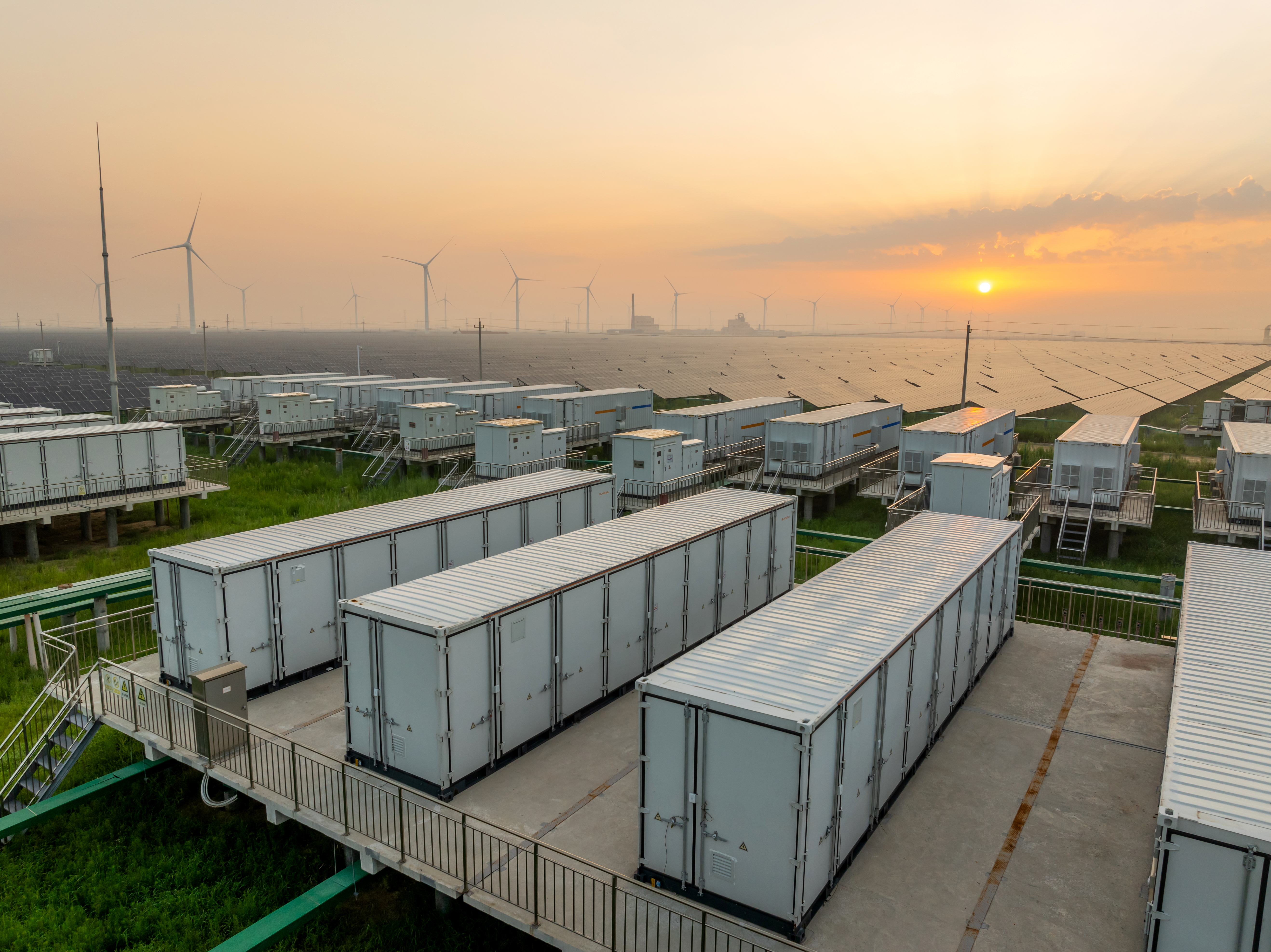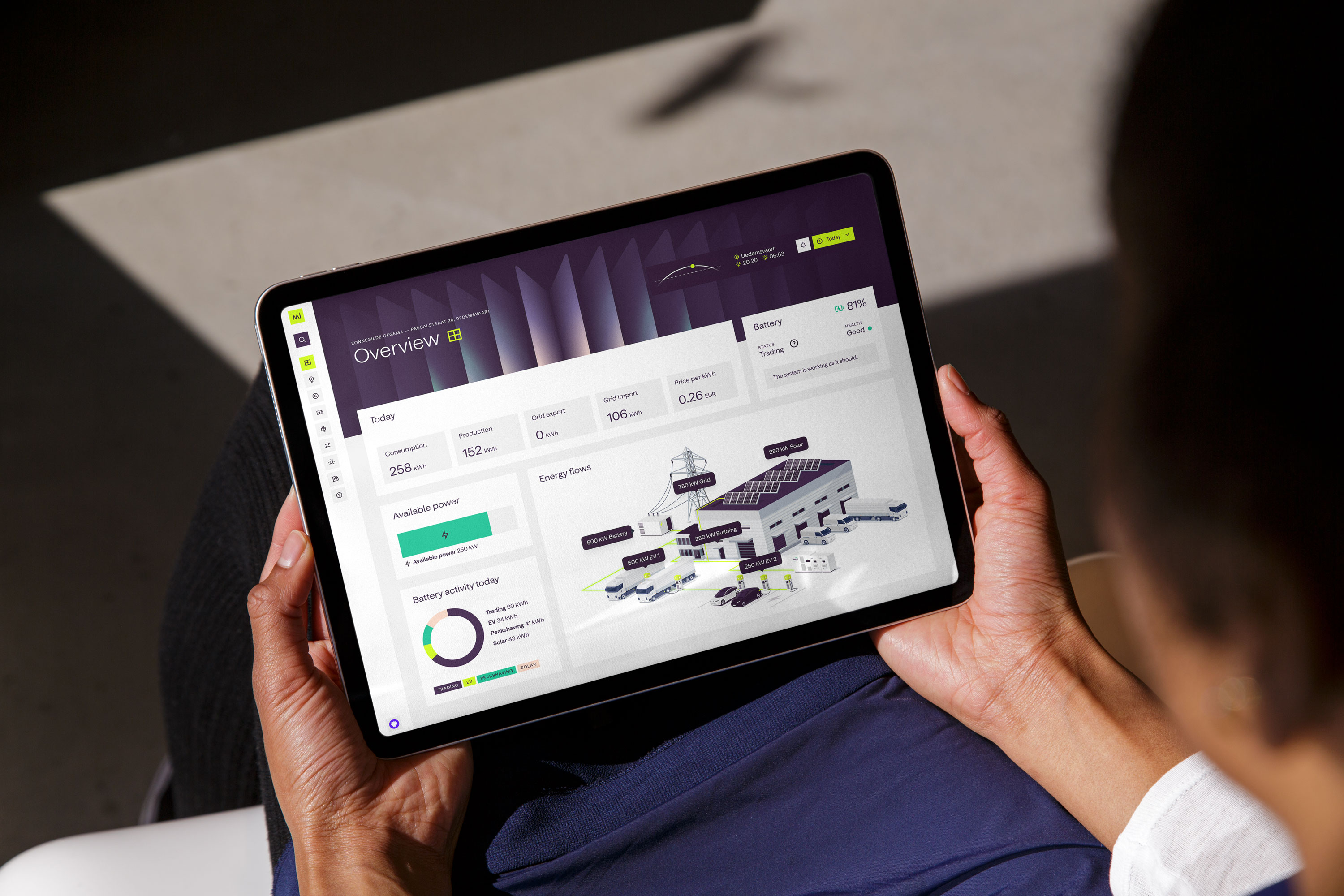5 ways to get more value out of your solar panels as a company
%20(1).jpg)
In 2024, solar panels delivered lower returns than ever before. Not because the sun stopped shining, but because the electricity grid is increasingly flooded with power that no one needs. Feed-in tariffs are vanishing and energy prices are dropping rapidly, sometimes even going negative. What was once a smart investment is now at risk of turning into a financial liability. Yet, starting in 2026, the Flemish Government will oblige companies that consume more than 1 gigawatt-hour of electricity per year to install solar panels. It’s time to flip the script. But how does your business get more value out of its solar panels?
It’s not the solar energy, it’s the timing
Solar panels generate electricity whenever the sun shines. And even though this might sound great, the production of solar energy rarely aligns with the actual consumption of it. This mismatch is especially common in offices, warehouses or industrial buildings, due to variable occupancy or lower activity during weekends and public holidays.
The result? Your company’s solar panels generate plenty of power precisely when you don’t need it. And thousands of other installations are doing the same thing at the same time. That oversupply drives market prices down. Sometimes even so far down that your business has to pay to inject energy into the grid, leading to a negative return, despite a positive investment.
“According to creg.be, the number of hours with negative prices on the day-ahead markets has increased significantly: from 222 hours in 2023 to 408 hours in 2024, which represents 4.6% of the time.”
How to maximise the return on your solar panels
A solar panel only generates power. But whether that power creates value depends entirely on your business’ strategy. Here are some of the ways smart companies get the most out of their solar assets:
- Increase self-consumption: use your generated energy locally as much as possible. Smart systems can automatically activate machines and processes during solar production hours.
- Store excess energy: use batteries to store surplus energy instead of injecting it into the grid. This makes your business not only more self-sufficient, but also helps you to avoid negative feed-in tariffs.
- Sell at the right time: an intelligent energy management system (EMS) can help your company sell its stored energy at the right time. Rather than selling when prices hit rock bottom, you sell when they peak.
- Reduce peak loads and capacity charges: smart energy storage allows you to flatten peak demand and volatility, and avoid high capacity tariffs, which are becoming more and more common in many regions in Belgium.
- Engage in active energy trading: take advantage of price fluctuations: buy when electricity is cheap or even free, and sell when prices surge. There’s huge potential for businesses that are actively trading their energy.
“The Brussels Times states that negative pricing is becoming increasingly frequent due to the growth of renewable energy production and primarily affects large electricity consumers such as big businesses.”
Store first, sell smart: the power of your EMS
By combining solar panels with an energy management system that controls your battery storage, your company can turn a legal obligation into a profitable business strategy. At iwell, we help businesses with intelligent EMS systems and scalable battery solutions. Stop feeding the excess power of your solar panels into an oversupplied grid. Reach out to us for more information and discover how to get more value out of your solar panels.
A custom business case
Turn your site’s energy potential into measurable business results with a tailored business case.
.jpg)


